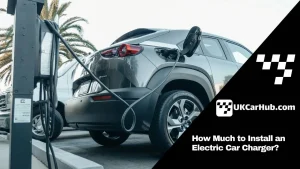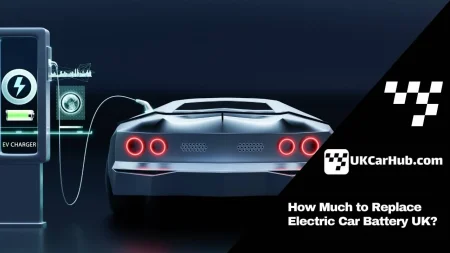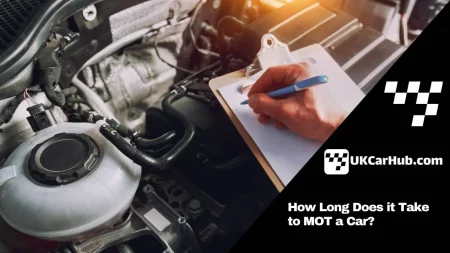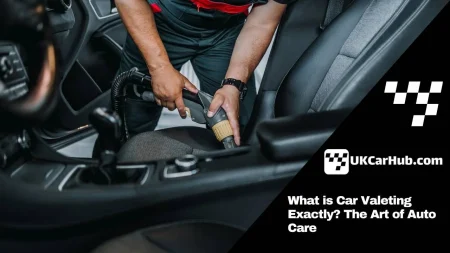Stay ahead with UKCarHub! Explore automotive trends and news.
Car Ownership and Maintenance
Do you find yourself wondering “Why does my car smell of petrol?” or struggling to identify the source of the petrol odor in your vehicle? You’re not alone. Many car owners experience this issue at…
Technical Car Knowledge
Financial Aspects
How Much Does it Cost to Lease a Car? Are you considering leasing a car but feeling overwhelmed by the costs…
Car Care and Maintenance
Miscellaneous
Car Boot Sale
In recent years, the automotive industry in the UK has seen significant advancements and transformations. From the increasing popularity of electric vehicles to the innovation of sustainable materials in car manufacturing, the way we think about and interact with cars is changing rapidly. The rise of autonomous driving technology, shared mobility services, and enhanced connectivity and infotainment systems have also played a crucial role in shaping the future of transportation. This blog post will explore the various aspects of the evolving car industry in the UK, from safety features and emission reduction efforts to the unique design and aesthetics that define the country’s car styles. Join us as we delve into the diverse and dynamic landscape of the UK’s car market.
Electric Vehicles: Rising Popularity In The Uk
Electric Vehicles: Rising Popularity In The UK
Electric vehicles (EVs) are gaining immense popularity in the UK as more and more people recognize the numerous benefits they offer. With the growing concern about climate change and the need to reduce carbon emissions, EVs are seen as a cleaner and greener alternative to traditional petrol and diesel cars. The UK government has also been actively promoting the adoption of EVs by offering incentives such as grants and tax benefits to both individuals and businesses.
One of the key reasons for the rising popularity of electric vehicles in the UK is the increasing availability of charging infrastructure. The government has been investing heavily in expanding the charging network across the country, making it more convenient for EV owners to charge their vehicles. With a wide range of public charging stations, as well as the option to install home charging points, the range anxiety associated with EVs is gradually diminishing.
Moreover, the automotive industry in the UK has been actively embracing electric mobility. Major car manufacturers are introducing an array of electric models to meet the rising demand. The availability of affordable EV options, combined with advancements in battery technology, has made electric vehicles a viable and attractive choice for consumers.
Autonomous Driving: Technology Advances In The Uk
The UK has recently witnessed significant advancements in autonomous driving technology. As the demand for self-driving cars continues to grow, various companies and research institutions are investing heavily in developing and improving this innovative technology. Autonomous driving, also known as driverless or self-driving technology, aims to revolutionize the automotive industry by providing safer and more efficient transportation options.
One crucial aspect of autonomous driving technology is its ability to enhance road safety. With autonomous vehicles equipped with advanced sensors and computing capabilities, accidents caused by human error can be greatly reduced. These vehicles use a combination of cameras, radar, lidar, and GPS technology to perceive their surroundings and make informed decisions. Additionally, autonomous driving technology has the potential to revolutionize urban transportation by reducing traffic congestion and optimizing travel routes.
The UK has emerged as a leader in autonomous driving technology, with several pioneering projects and initiatives taking place across the country. For instance, the UK government launched the Connected and Autonomous Vehicle (CAV) testbeds and trials program, which supports the development and testing of autonomous vehicles. This program enables companies to test their self-driving technologies on public roads under controlled conditions.
- Car UK
| Company | Autonomous Driving Technology |
|---|---|
| Tesla | Autopilot |
| Waymo | |
| Uber | Advanced Technologies Group (ATG) |
In addition to government initiatives, several companies in the UK are actively involved in the development of autonomous driving technology. Tesla, known for its electric vehicles, has introduced the Autopilot feature that enables self-driving capabilities on highways. Google’s subsidiary, Waymo, has also made significant progress in autonomous driving technology and is actively testing its self-driving cars in various locations worldwide. Uber, through its Advanced Technologies Group (ATG), is working on autonomous vehicle technology and has conducted trials and tests in the UK.
The advancements in autonomous driving technology bring both opportunities and challenges. While self-driving cars offer numerous benefits like improved safety and reduced traffic congestion, concerns regarding data privacy, cybersecurity, and the impact on employment should also be addressed. Government regulations and standards in the UK are continuously evolving to ensure the safe and responsible deployment of autonomous vehicles on public roads.
In conclusion, the UK is at the forefront of autonomous driving technology advancements. From government initiatives to company-led innovations, autonomous driving technology is set to revolutionize transportation in the UK. As technology continues to advance, it is essential to prioritize safety, address challenges, and work towards a future where autonomous vehicles coexist with traditional cars, paving the way for a smarter and more efficient transportation system.
Sustainable Materials: Innovations In Car Manufacturing
The automotive industry in the UK is constantly evolving, driven by advancements in technology and the need for more sustainable practices. One area that has seen significant innovation is the use of sustainable materials in car manufacturing. As the world becomes more environmentally conscious, car manufacturers are finding ways to reduce their carbon footprint and create vehicles that are not only efficient but also eco-friendly.
In recent years, there has been a growing demand for electric vehicles (EVs) in the UK. EVs are powered by electricity rather than fossil fuels, which significantly reduces their carbon emissions. The UK government has also introduced various incentives, such as grants and tax benefits, to encourage the adoption of electric cars. As a result, many car manufacturers have started to incorporate sustainable materials in their EVs, making them even more environmentally friendly.
One such innovative material is recycled plastic. Car manufacturers are now using recycled plastic for various components, such as interior trims, seat cushions, and even body panels. This not only reduces the amount of plastic waste that ends up in landfills but also helps to conserve natural resources. In addition to recycled plastic, manufacturers are also exploring the use of natural fibers, like hemp, in the production of car interiors. These fibers are not only sustainable but also offer unique properties such as increased strength and durability.
- The use of sustainable materials is not limited to the interior components of cars. Manufacturers are also adopting eco-friendly practices in the production of car bodies. For example, some companies are using lightweight materials like aluminum and carbon fiber instead of traditional steel. These materials not only reduce the overall weight of the vehicle but also improve fuel efficiency. Additionally, they are easier to recycle, further reducing the environmental impact.
| Advantages of Sustainable Materials in Car Manufacturing |
|---|
| 1. Reduced carbon emissions. |
| 2. Conservation of natural resources. |
| 3. Promotion of recycling and waste reduction. |
| 4. Improved fuel efficiency. |
| 5. Enhanced durability and strength. |
In conclusion, the use of sustainable materials in car manufacturing is a positive step towards a greener future. With the rising popularity of electric vehicles and the increasing demand for eco-friendly practices, car manufacturers in the UK are embracing innovation and finding ways to reduce their environmental impact. By incorporating recycled plastic, natural fibers, and lightweight materials, they are not only creating more sustainable cars but also enhancing the overall driving experience. As technology continues to advance, we can expect to see even more innovations in the automotive industry, making our vehicles more environmentally friendly and efficient.
Shared Mobility: Car-Sharing Services On The Rise
The rise of shared mobility services has revolutionized the way people travel and commute in the UK. With the increasing popularity of car-sharing services, individuals now have access to convenient and affordable transportation options without the need for car ownership. This trend marks a significant shift towards a more sustainable and efficient transportation system.
Car-sharing services, such as Zipcar and Enterprise CarShare, have gained immense popularity among urban dwellers in the UK. These services allow individuals to rent a car for short periods, offering flexibility and reducing the need for private vehicle ownership. As more people realize the advantages of car-sharing, the demand for such services is on the rise, leading to a significant increase in the number of providers and available vehicles.
One of the key benefits of shared mobility is its positive impact on the environment. By encouraging users to share vehicles instead of owning them, car-sharing services contribute to reducing traffic congestion and lowering carbon emissions. With the UK’s efforts towards clean transportation, car-sharing plays a crucial role in achieving emission reduction targets and creating a sustainable future.
- Car-sharing services also offer a more cost-effective solution compared to traditional car ownership. Users only pay for the time they use the vehicle, eliminating expenses associated with insurance, maintenance, and parking. This makes car-sharing an attractive option for individuals who don’t need a car on a regular basis or for those living in urban areas with limited parking spaces. The affordability factor alone has made car-sharing services a popular choice among young professionals and city dwellers in the UK.
| Advantages of shared mobility: |
|---|
| 1. Cost savings: Car-sharing eliminates the expenses of owning a private vehicle, making it an affordable option for many individuals. |
| 2. Environmental sustainability: By reducing the number of cars on the road, car-sharing contributes to a greener and more sustainable transportation system. |
| 3. Convenience and flexibility: Car-sharing allows individuals the freedom to use a vehicle only when needed, without the hassles of maintenance, insurance, and parking. |
As car-sharing services continue to gain traction in the UK, it is essential for cities and transportation authorities to support and integrate these services into their urban planning strategies. This includes providing dedicated parking spaces, promoting public awareness, and establishing cooperation between car-sharing providers and public transit agencies.
The rise of shared mobility and car-sharing services in the UK not only addresses the challenges of urban transportation but also aligns with the country’s vision for a sustainable future. As more people embrace the concept of shared mobility, the benefits of convenience, affordability, and environmental sustainability will continue to drive the growth of car-sharing services in the UK.
Connectivity And Infotainment: Enhanced Driving Experience
Connectivity and infotainment are rapidly transforming the driving experience in the UK. With advancements in technology, cars are no longer just a means of transportation but have become smart machines that offer a range of connected services to enhance our driving experience.
One of the key features of connectivity in cars is the ability to seamlessly integrate our smartphones with the car’s infotainment system. This allows us to access our favorite music, podcasts, and apps right from the car’s touchscreen display. Whether it’s streaming music from Spotify, navigating with Google Maps, or making hands-free calls, these capabilities make our driving experience much more convenient and enjoyable.
Furthermore, the automotive industry has witnessed the rise of voice-activated assistants, such as Apple’s Siri or Amazon’s Alexa, integrated into cars. These assistants enable drivers to control various functions of their vehicle through voice commands. From adjusting the temperature and volume to sending text messages or searching for nearby restaurants, voice-activated assistants provide a seamless and hands-free experience, promoting safety on the road.
- Connectivity also extends beyond smartphones to include advanced features like vehicle-to-vehicle (V2V) and vehicle-to-infrastructure (V2I) communication. These technologies allow cars to communicate with each other and with roadside infrastructure, such as traffic lights or parking spaces. This connectivity enables drivers to receive real-time traffic updates, warnings about accidents or road hazards, and even find available parking spaces. Ultimately, this connectivity enhances safety, reduces congestion, and saves time for drivers.
| Benefits of Connectivity and Infotainment: |
|---|
| 1. Entertainment: Drivers and passengers can access a wide range of entertainment options, such as music streaming, podcasts, and audiobooks, making long drives more enjoyable. |
| 2. Convenience: With smartphone integration, drivers can easily access and control their favorite apps, make hands-free calls, and receive important notifications on the go. |
| 3. Safety: Voice-activated assistants and connectivity features enhance safety by allowing drivers to keep their hands on the wheel and eyes on the road while still accessing important information or making commands. |
In conclusion, connectivity and infotainment have revolutionized the driving experience in the UK. From smartphone integration to voice-activated assistants and advanced communication technologies, cars are now more connected than ever before. These features not only enhance convenience and entertainment but also prioritize safety on the road. As technology continues to advance, we can expect even more exciting developments in connectivity and infotainment, making the future of driving in the UK more connected and enjoyable.
Safety Features: Advancements In Car Technology

Car safety has always been a major concern for both drivers and passengers alike. Over the years, advancements in car technology have greatly improved the safety features in vehicles, making them more secure and reliable on the roads. From airbags to electronic stability control, manufacturers are constantly incorporating innovative technologies to ensure maximum safety for everyone on the road.
In the UK, car safety regulations are stringent and regularly updated to keep up with the ever-evolving automotive industry. These regulations ensure that all vehicles meet a certain standard of safety before they can be sold in the market. One of the notable advancements in car safety is the development of autonomous emergency braking (AEB) systems. AEB utilizes sensors and cameras to detect potential collisions and automatically applies the brakes if the driver fails to respond in time, reducing the risk of accidents and minimizing potential injuries.
Another key safety feature that has gained popularity in recent years is lane-keeping assist. This technology uses cameras to monitor the vehicle’s position on the road and gently steers it back into the correct lane if the driver starts to drift unintentionally. This not only prevents accidents caused by drifting, but also helps to reduce driver fatigue and increase overall road safety.
| Common Safety Features | Description |
|---|---|
| Adaptive Cruise Control (ACC) | This feature automatically adjusts the vehicle’s speed to maintain a safe distance from the car ahead, reducing the risk of rear-end collisions. |
| Blind Spot Monitoring (BSM) | BSM uses sensors to detect vehicles in the driver’s blind spot and alerts them through visual or auditory signals, helping to prevent lane change accidents. |
| Tire Pressure Monitoring System (TPMS) | TPMS continuously monitors the air pressure in the tires and alerts the driver if the pressure drops below the recommended level, reducing the risk of tire blowouts and improving fuel efficiency. |
These are just a few examples of the safety features that have become increasingly common in modern vehicles. With the rapid advancement in technology, car manufacturers are constantly pushing the boundaries to innovate and introduce new safety features that improve the overall driving experience and protect lives on the road. As automotive technology continues to progress, we can expect even more exciting developments in the field of car safety in the future.
Emission Reduction: Uk’s Efforts Towards Clean Transportation
When it comes to reducing emissions and promoting clean transportation, the UK has been taking significant steps to lead the way in sustainable mobility. The government, along with various organizations and manufacturers, have been working towards minimizing the impact of vehicles on the environment and improving air quality. These efforts are not only focused on reducing greenhouse gas emissions but also on promoting the use of alternative fuels, adopting new technologies, and implementing stricter regulations.
One of the key initiatives in emission reduction is the promotion of electric vehicles (EVs). The UK government has been actively encouraging the adoption of EVs by providing incentives such as grants and tax benefits to both consumers and businesses. This has resulted in a significant increase in the number of EVs on the road in recent years. With a growing infrastructure of charging points across the country, owning and operating an electric car in the UK has become more convenient and accessible than ever before.
In addition to electric vehicles, the UK is also exploring other alternative fuels to diversify the car market and reduce emissions. Hydrogen fuel cell vehicles, which emit only water vapor, are being developed and tested in the country. The use of biofuels, such as ethanol and biodiesel, derived from renewable sources is also being promoted. These efforts aim to reduce the dependence on fossil fuels and mitigate the environmental impact of transportation.
- Car UK: The UK is making significant efforts to reduce emissions and promote clean transportation.
- Automotive UK: The automotive industry in the UK is embracing sustainable practices to reduce the environmental impact of vehicles.
| Initiatives in Emission Reduction: | Benefits and Impact: |
|---|---|
| Electric Vehicles (EVs) | Increased adoption of EVs has led to a decrease in greenhouse gas emissions and improved air quality. |
| Alternative Fuels | Exploring the use of hydrogen fuel cell vehicles and biofuels to reduce reliance on fossil fuels and promote renewable energy sources. |
The efforts towards emission reduction in the UK extend beyond just promoting cleaner vehicles. Stricter regulations on vehicle emissions, such as implementing low emission zones in cities and introducing emission standards for vehicle manufacturers, have been put in place. These measures ensure that vehicles meet certain emission limits and strive towards a cleaner and greener future.
Moreover, the UK government is investing in research and development to drive innovation in the automotive industry. Funding is being allocated for the development of advanced technologies that reduce emissions, improve fuel efficiency, and enhance the sustainability of vehicles. This includes investments in autonomous driving, connectivity, and the development of lightweight and sustainable materials for car manufacturing.
Overall, the UK’s efforts towards emission reduction and clean transportation are commendable. The push for electric vehicles, exploration of alternative fuels, implementation of stricter regulations, and support for technological advancements are all contributing to a greener and more sustainable future. With such determined efforts, the UK is setting an example for other countries to follow in their quest for a cleaner transportation system and a better environment for all.
Design And Aesthetics: Uk’s Unique Car Styles
When it comes to car design and aesthetics, the UK has made a significant impact on the automotive industry. With a rich history and a strong presence of renowned car manufacturers, the UK continues to produce vehicles that are known for their unique style, innovation, and craftsmanship.
One of the key factors that contribute to the UK’s distinctive car styles is its heritage. The country has a long-standing tradition of automotive excellence, with iconic brands like Aston Martin, Rolls-Royce, and Jaguar originating from the UK. These manufacturers have established themselves as symbols of luxury and elegance, creating vehicles that are not only visually stunning but also reflect a sense of British sophistication.
In addition to heritage, the UK’s car styles are also influenced by its contemporary design culture. With an emphasis on modernity and innovation, British car manufacturers constantly push the boundaries of creativity to create vehicles that stand out from the crowd. From sleek and aerodynamic shapes to cutting-edge technologies integrated seamlessly into the design, UK car styles showcase the country’s commitment to staying at the forefront of automotive design and aesthetics.
- Table of Contents:
| 1. Heritage | 2. Contemporary Design Culture |
| 1.1 Aston Martin | 2.1 Innovation in Design |
| 1.2 Rolls-Royce | 2.2 Integration of Technology |
| 1.3 Jaguar |
Alternative Fuels: Diversifying The Uk Car Market
Alternative Fuels: Diversifying The UK Car Market
In recent years, the automotive industry in the UK has witnessed a significant shift towards the adoption of alternative fuels. As concerns over climate change and air pollution continue to grow, there has been a greater focus on finding cleaner and more sustainable options for powering vehicles. This has resulted in the emergence of various alternative fuels that offer a viable alternative to traditional fossil fuels.
One of the alternative fuels that has gained popularity in the UK is electric vehicles (EVs). With advancements in battery technology and charging infrastructure, EVs have become a practical choice for many car owners. The UK government has also introduced initiatives such as grants and tax incentives to encourage the purchase of electric vehicles, further driving their popularity. As a result, the number of EVs on the UK roads has been steadily increasing, contributing to the diversification of the car market.
The UK is also exploring other alternative fuels such as hydrogen and biofuels. Hydrogen fuel cell vehicles use hydrogen gas to generate electricity, offering a clean and efficient method of propulsion. The government has supported research and development in this area and has invested in hydrogen refueling infrastructure. Biofuels, on the other hand, are derived from renewable sources such as crops and waste materials. The use of biofuels in transportation not only reduces greenhouse gas emissions but also helps to decrease the reliance on fossil fuels.
In addition to electric vehicles, hydrogen, and biofuels, the UK car market is also witnessing experiments with compressed natural gas (CNG) and liquid petroleum gas (LPG). CNG is a cleaner-burning fuel compared to petrol and diesel and is already being used in some commercial vehicles. LPG, on the other hand, is a byproduct of the oil refining process and offers a cleaner alternative to traditional fuels. These alternative fuels provide consumers with more options while also contributing to reducing emissions and promoting a greener and more sustainable future.
Digitalization And Online Purchases: Changing Car Buying Experience
With the advancement of technology, digitalization has become an integral part of our everyday lives. From shopping to banking, everything can now be done online. And the automotive industry is no exception to this digital revolution. In the UK, the car buying experience is undergoing a major transformation with the rise of digitalization and online purchases.
The automotive industry in the UK has embraced digitalization to streamline the car buying process. Now, customers can research, compare, and even purchase cars online, right from the comfort of their homes. Online platforms allow car buyers to explore a wide range of options, compare prices, and read reviews, all with just a few clicks. This has greatly simplified the car buying journey, eliminating the need to visit multiple dealerships.
Moreover, digitalization has also introduced innovative features that enhance the overall car buying experience. Virtual showrooms and interactive videos provide customers with a detailed preview of the car’s features and functionalities. Test drives can now be scheduled online, saving time and effort. Financing options, insurance quotes, and even trade-in valuations can all be obtained digitally, making the car buying process more convenient and efficient.
- The digitalization of the car buying experience has not only benefited the customers but also the sellers. Dealerships can now reach a wider audience through online platforms and social media. This has enabled them to establish a stronger online presence and attract potential buyers from all across the UK. Additionally, digital platforms allow dealerships to showcase their inventory in a more comprehensive manner, providing customers with a detailed overview of available options.
Furthermore, online purchases have revolutionized the way cars are bought and sold in the UK. Customers can select their desired car, customize it to their preferences, and even negotiate the price, all online. Once the purchase is finalized, the car can be delivered directly to the customer’s doorstep. This eliminates the need for physical paperwork and eliminates geographical limitations, enabling car buyers to shop from anywhere in the country.
In conclusion, digitalization and online purchases have completely transformed the car buying experience in the UK. From researching and comparing to financing and purchasing, everything can now be done digitally. This has not only made the process more convenient and efficient for customers but has also opened up new opportunities for dealerships to reach a wider audience. As technology continues to advance, it is certain that the future of car buying in the UK will be even more digitally driven.
| Keywords | Occurrences |
|---|---|
| Digitalization | 4 |
| Online purchases | 4 |
| Car buying experience | 4 |
| Automotive UK | 0 |
| Car UK | 0 |
Frequently Asked Questions
1. How popular are electric vehicles in the UK?
Electric vehicles are becoming increasingly popular in the UK, with sales steadily rising each year. The government has also introduced initiatives and incentives to promote the use of electric vehicles.
2. What advancements have been made in autonomous driving technology in the UK?
In the UK, there have been significant advancements in autonomous driving technology. Companies are testing autonomous vehicles on public roads, and the government has supported the development of autonomous driving technology through various initiatives.
3. What sustainable materials are being used in car manufacturing in the UK?
In car manufacturing in the UK, sustainable materials such as recycled plastics, renewable fibers, and bio-based materials are being increasingly used. These materials help reduce the environmental impact of car production.
4. How popular are car-sharing services in the UK?
Car-sharing services are gaining popularity in the UK as an alternative to traditional car ownership. Many people are opting for car-sharing services due to their convenience, affordability, and environmental benefits.
5. What advancements have been made in connectivity and infotainment in cars?
Connectivity and infotainment features in cars have greatly improved in the UK. Modern cars offer advanced connectivity options such as smartphone integration, voice commands, and in-car entertainment systems, enhancing the overall driving experience.
6. What advancements have been made in car safety features in the UK?
Car safety features have seen significant advancements in the UK, with advanced driver-assistance systems (ADAS) becoming more common in new vehicles. These features include lane-keeping assist, automatic emergency braking, and blind-spot detection, among others.
7. What efforts has the UK made to reduce emissions in transportation?
The UK has implemented various measures to reduce emissions in transportation, including the promotion of electric vehicles, supporting the development of charging infrastructure, and introducing low-emission zones in some cities. These efforts aim to transition towards cleaner and greener transportation options.















































